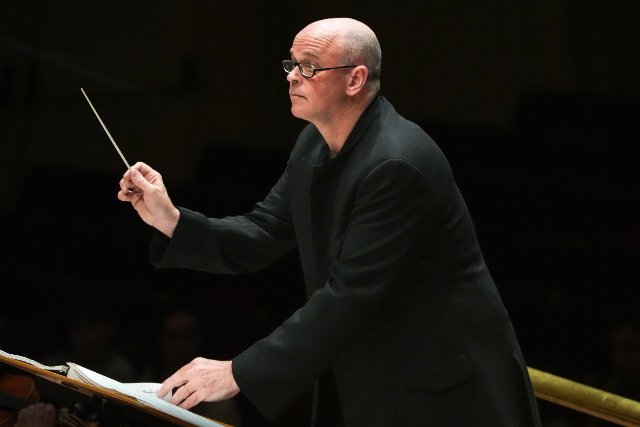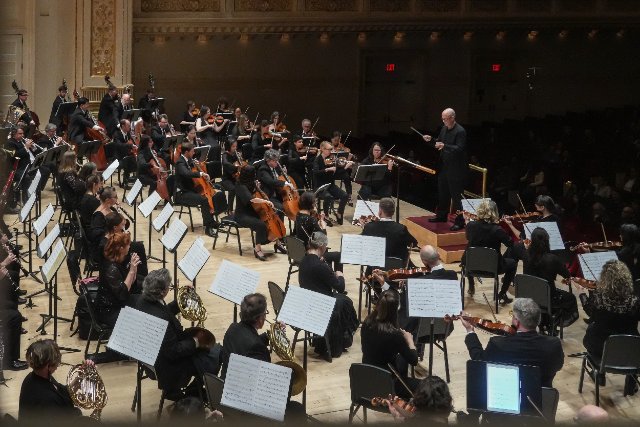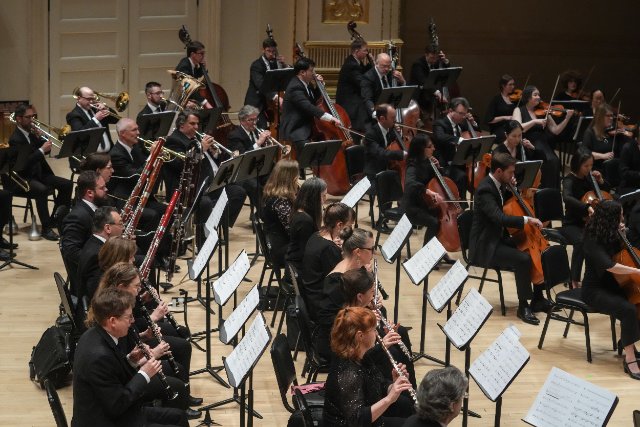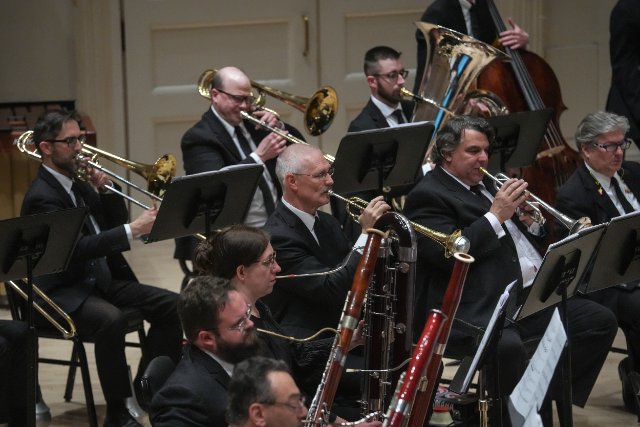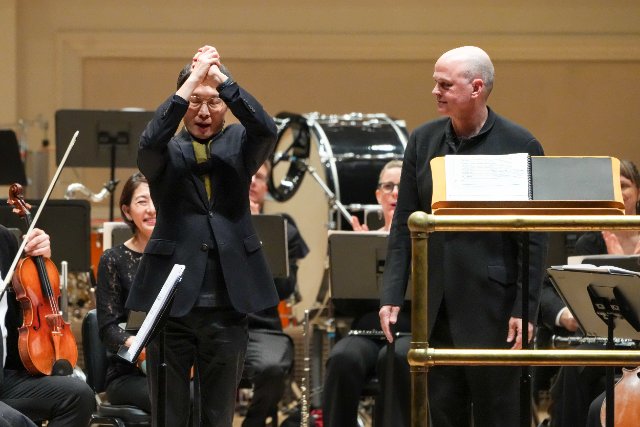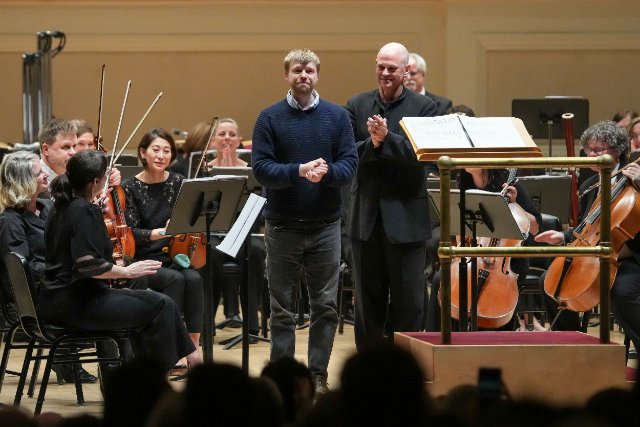Boston Modern Opera Project at Carnegie Hall
Case for Symphonic Sound Brilliantly Made
By: Susan Hall - Apr 17, 2023
The Boston Modern Opera Project (BMOP) made its Carnegie Hall debut last weekend. Bostonians have had the privilege of hearing and seeing this company for many years. The program at Carnegie enticed.
BMOP is a leading commissioner and presenter of new music. On its symphonic slate, it not only makes a brilliant case for hearing the 'new,' it also makes the case for the symphonic form. The challenge of keeping classical music alive and attracting audience is felt by every symphony across the globe. In the US, critic Alex Ross has suggested that survival depends on the health of local orchestras. Miraculously, after reading his suggested path, a big contributor to the Chicago Symphony gave two million dollars to his home town symphony in South Dakota.
What of the big towns where there is competition among several symphonies? Is the form itself worth preserving?
This is where the BMOP comes up with a unique and resounding Yes. Their program, with something very new, something new and something, well, ten years old, kept us firmly in the present and showed us the future.
For the first two works by Lisa Bielawa and Lei Liang the splendid acoustics of Carnegie were particularly useful. In Lei Liang's A Thousand Mountains, A Million Streams, conductor Gil Rose opened a door to let selected new sounds in. Some were lovely, some unfamiliar, and delivered with unexpected rhythms. Bell-like tones and chimes reverberated throughout the Hall and stayed with us long after they had been pounded or plucked. This is the marvel Carnegie offers.
We felt we were in the midst of a new sonic space. While Lei Liang talks about being inspired by pictures, the organization of tones into a special universe, whose canopy pings back down to the listeners, is particularly striking.
In all three works, the orchestra was huge. I was unable to get an exact count, but the instrumentalists for the Andrew Norman work Play, crammed the stage. Norman’s work comes closest to Edgard Varese, with its sounds of the city lofted by string players tapping the body of their instruments, and what sounded like wood blocks making us smile when they were often chopped randomly and full of surprise.
No one commissions, creates and performs contemporary music the way Gil Rose, the founder of BMOP, does.
Discussions by the composers give us nuggets to latch on to. Yet it is in performance that their works are truly revealed. We are hearing a new sound scape, one which totally enwraps us. Words are unnecessary, because we are being transported to a new place, one we have not yet imagined. This is not a literary experience. It is absorbing sound.
The sounds we hear are unusual. Wood blocks or their equivalent often give the beat. as do the strings used as percussion instruments. Perhaps because he is a fan of harsh, disturbing and exciting sounds, Norman can come to a full embrace of silence. Walking with a member of the Berlin Philharmonic on the High Line in New York, Norman notes the expanse of the Hudson fjord immediately at hand. The special quiet he creates may come from the quiet of the water in the New York harbor.
Norman talks about the embodiment of music by the Berlin Philharmonic artists. This too is experienced by the audience for his music performed by the BMOP.
Norman knows the players well. He creates individually tailored snippets for many of them. He can combine intimacy and grandeur with seeming ease.
Gil Rose, the talented and adventuresome creator of BMOP, has dared to title his program Play It Again, with a sly reference to Casablanca, often cited as the world’s most distinguished and popular film. He can do this because his work for the last quarter century heads the class of new music created and performed. He may save the symphonic form with his deep understanding of where music is going. His evening at Carnegie made the case.

